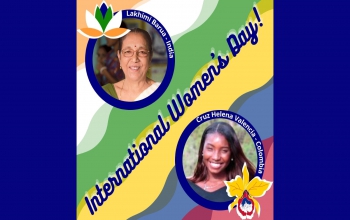Menu
- Embassy
- Consular
- Fees
- General Information
- Visa Services
- Passport Applications
- Misc. Services on Passports
- List of Services and General Info
- Police Clearance Certificate (For Indians Only)
- Police Clearance Certificate (for other than Indian Nationals)
- Attestation of Documents
- Registration of Marriage at Embassy
- Death of Indian National in Colombia/Ecuador
- Life Certificate
- Re-issue of International Driving Permit (IDP) - for Indians in Ecuador ONLY
- Apostille-service
- OCI Services
- For Indian Community/NRIs in Colombia/Ecuador
- Indian Citizen by Descent
- Guidelines for Registering Grievances
- Bilateral
- Commerce
- Embassy Tenders
- Trade Fairs / Exhibitions in India
- Uttar Pradesh International Trade Show 2025
- Expo de Acero de la India 2023
- 22nd International Crop Science Conference & Exhibition (ICSCE 2025 Delhi)
- PLASTINDIA 2023
- Rising North East Investors Summit 2025
- Bharat Mobility 2024
- International Arogya 2024
- Bharat Telecom 2024
- Uttar Pradesh International Trade Fair 2024
- B-2-B Connect
- Trade Fairs/Exhibitions in Colombia
- e-brochure of GI (Indicación geográfica) Productos
- FAQs on Recent Farm Bills in India
- IndBiz : Economic Diplomacy Portal
- Strategic Disinvestment of Neelachal Ispat Nigam Ltd.(NINL)
- Local Perception of the IndianInvasion in Colombia
- Local Perception of the Indian investment in Colombia
- DGFT Complaints Portal
- Cultural
- Media Room
- Education
- ITEC
- Announcement of International Hindi Olympiad 2024 and Amrit Kumbh Samman 2024
- Scholarships
- KIIT University || KUISP Scholarship Program (100% scholarship of the tuition fee)
- ICCR Scholarships 2023-2024
- ITEC
- Hindi Scholarship 2024-2025
- Scholarship Programme for Diaspora Children (SPDC) Schme for the academic year 2023-24.
- AYUSH Scholarship 2023-2024
- Announcement of ICCR Scholarship slots under AYUSH Scholarship Scheme for the Academic Year 2024-2025
- Rashtriya Raksha University (RRU)
- KNOW INDIA PROGRAMME (KIP) 2025
- Useful Links
- COVID Help/Info
- Vacancy of Chauffeur
- Contact Us




















